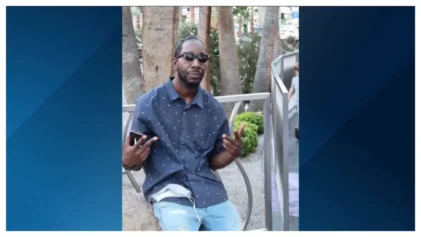Lawyers for a 94-year-old grandmother allege that after she fell behind in taxes on her condominium, the county she lives in illegally snatched her property.
Her case is now before the U.S. Supreme Court to determine if the seizure and sale of the property were constitutional or a violation of her civil rights.
The Pacific Legal Foundation is representing the woman and believes it can prove that the county violated her Fifth Amendment rights.

Eyes are focused on the case as it may set a precedent for the nation on if local governments and private companies are legally able to keep profits from a home in tax problems when sold after forfeiture, according to NBC News.
Geraldine Tyler lived in her one-bedroom Minneapolis condo since purchasing it in 1999, living there for a little over a decade before moving to a senior assisted-living property in 2010. At the time, the woman was 81 years old and was struggling to live on her own. As a result, her children persuaded her to move to a facility with people close to her age and round-the-clock support.
Once she moved, the elderly woman stopped paying property tax on the residence. After five years, she acquired an unpaid tax bill (including interest and fees) totaling $15,000, and Hennepin County seized it.
The county sent her information stating she was in danger of losing the condo if she did not settle her debt. She did not respond, opening the door for the county, under state law, to take possession of the property and sell it.
The condo was sold at auction for $40,000, but the county did not pay the older woman the $25,000 profit from the sale that she was owed.
PLF says the county committed “equity theft” in the case of their elderly client.
“We call that home equity theft because it’s essentially legalized government theft,” said Christina Martin, an attorney for the PLF, to NPR.
David Deerson, who is also representing Tyler, said to Live 5 News, “The government can’t take property for public purposes without just compensation. Which means it has to pay you the fair market value of what the property is worth.”
Tyler and her legal team originally took her case before the St. Louis-based 8th U.S. Circuit Court of Appeals. The court rejected her claims in February 2022.
The state said under Minnesota law it provided Tyler “ample opportunity” for the woman to protect her interests, citing a provision that gave her up to three years to pay her taxes and stop the seizure.
“The plaintiff chose to abandon her interests in the property rather than acting to protect any equity she might have had. Hennepin County works very hard to help anyone who wants to avoid forfeiture. … Forfeiture is not a source of profit — factoring in all costs, Hennepin County’s program does not manage to break even,” said Assistant Administrator Dan Rogan.
Tyler’s lawyers do not dispute that her property should have been seized for nonpayment. However, she argues that by not paying her what he is owed from the sale, the government took “more than it’s owed.”
“That’s ultimately wrong,” Martin said. “And we believe it’s unconstitutional.”
The U.S. Supreme Court, which has a 6-3 conservative majority, is reviewing the case, which happens to be its last oral argument for the October to June term.
From now until the term’s end, they will focus on giving out the rulings for the cases presented before them over the last six months.
A benefit for Tyler is that the court often sides with owners on property rights claims.
Several of the justices gave their thoughts and seemed to be sympathetic to Tyler.
Conservative Justice Neil Gorsuch asked about the limits that a government might have when it came down to seizing properties and probed to understand the standard of distributing the surplus (if any) to someone who owes back taxes on a property.
An example he gave was of the forfeiture of a $1 million property, and the owner owes $5,000 in taxes.
Chief Justice John Roberts referenced the Fifth Amendment and asked, “What’s the point of the takings clause?” before adding, “The Constitution seemed to have a different idea in mind.”
According to the Constitution Center, “The Takings Clause of the Fifth Amendment to the United States Constitution reads as follows: “Nor shall private property be taken for public use, without just compensation.”
Justice Brett Kavanaugh also agreed with Gorsuch and Roberts saying it would be “very counterintuitive” to interpret the Constitution in a way other than protecting the property rights of owners.
While Justice Ketanji Brown Jackson said that ruling in favor of Tyler is more complicated and might cause a “real, big practical problem.”
Attorney Rebecca Holschuh, who represents the county, maintains on the issue of profit, there was no surplus from the sale.
She stated, “The county doesn’t make a profit. The county doesn’t even break even through its administration of the tax forfeiture laws.”
Holschuh also said that Tyler no longer had equity in the home at the time it was forfeited.
She listed that the senior owed the banks $48,000 on her mortgage and over $11,000 in homeowner’s association fees. According to Minnesota tax laws, her debts were canceled when the state declared her condo forfeited because of the unpaid taxes.
“This is really a remedy of last resort in which the title transfers to the state by default,” she said.
Martin also adds that Tyler’s age places her statistically with other victims of home forfeitures.
“[The] elderly, sick, or the vulnerable and unsophisticated” are usually those who find themselves in the very circumstance Tyler is in now. Still, that does not give the county the right to not divvy up the proceeds of the sale with the previous owner.
This is the first case of its kind before the U.S. Supreme Court and will be decided by the time court recesses for the summer in June.


